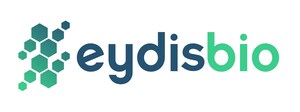DURHAM, N.C., Aug. 28, 2024 /PRNewswire/ -- EydisBio, an early-stage pharmaceutical company leveraging a novel approach to treating various autoimmune and inflammatory diseases, is thrilled to announce that it has been awarded a $2.6 million Phase 2 Small Business Innovation Research (SBIR) grant from the National Institute of Health's (NIH) National Heart, Lung, and Blood Institute (NHLBI). This grant will further support EydisBio's ongoing research into the efficacy of TAK1 inhibition in animal models of systemic sclerosis and declare a lead compound for progression into the clinic.
"We are honored to receive this significant grant from the NHLBI," said Dr. Tim Haystead, Founder and President of EydisBio. "This funding will enable us to continue to advance our TAK1 inhibitor program in systemic sclerosis and bring us closer to developing a new therapeutic option for these patients. We are strongly committed to improving the lives of those affected by this debilitating disease."
Systemic sclerosis, also known as scleroderma, is a rare chronic autoimmune disease characterized by hardening and tightening of the skin and connective tissues. It can also affect internal organs, leading to severe complications. Current treatments focus on managing symptoms and slowing disease progression, mainly for patients with systemic sclerosis-associated interstitial lung disease (SSc-ILD), but clinical benefit is highly limited and there is no cure. Moreover, no novel therapies have been approved for addressing manifestations beyond SSc-ILD, all of which highlights a critical unmet need across the entire systemic sclerosis disease spectrum.
Aberrant TAK1 signaling plays a pivotal role in the pathophysiological cycle of inflammation, fibrosis, and vasculopathy that drives systemic sclerosis, and inhibition of this pathway represents a novel therapeutic strategy. EydisBio's TAK1 inhibitors have demonstrated significant promise in recent preclinical studies involving fibroblasts derived from systemic sclerosis patients and a bleomycin-induced mouse model of the disease. This project will support continued analog development to identify a highly effective and safe lead compound and further investigate its potential for treating SSc-ILD and related manifestations. Following this, EydisBio will undertake GLP-compliant toxicity studies to support the advancement of the program through Investigational New Drug (IND) filing and into clinical trials.
For more information about EydisBio and their groundbreaking research, please visit www.eydisbio.com.
Media Contact:
Robert Freeze
[email protected]
SOURCE EydisBio, Inc.

WANT YOUR COMPANY'S NEWS FEATURED ON PRNEWSWIRE.COM?
Newsrooms &
Influencers
Digital Media
Outlets
Journalists
Opted In





Share this article